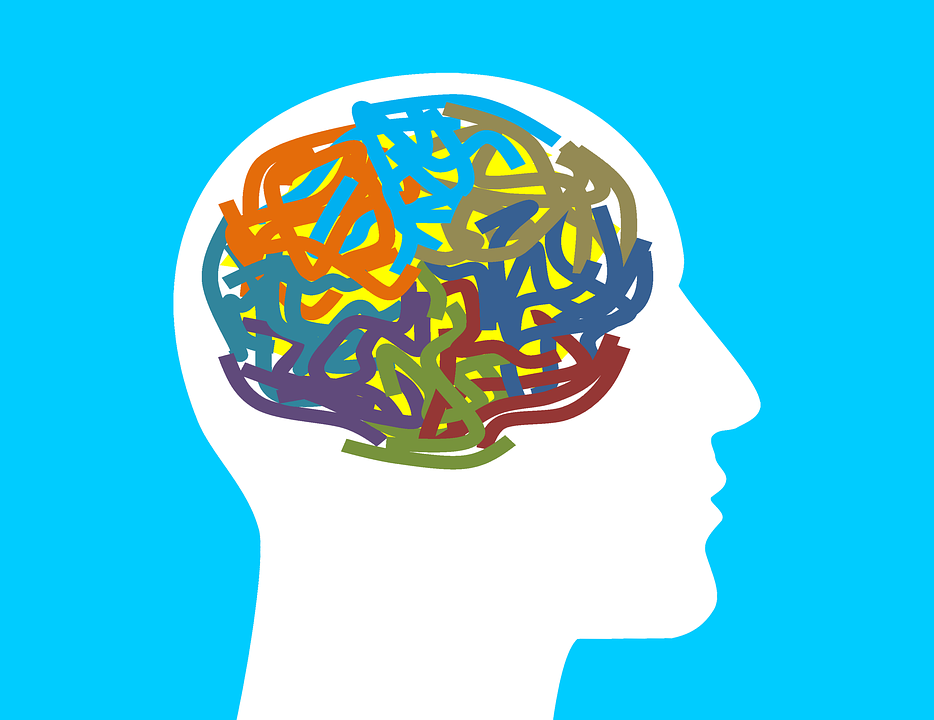Opening the Keys of Mental Health: A Summary of Therapy and Treatment Alternatives
Psychological health is a complicated and essential facet of overall wellness. Many counseling and therapy options exist to address numerous emotional difficulties. Each approach supplies special advantages and methods tailored to specific requirements. Understanding these choices is crucial for anybody looking for to enhance their psychological health and wellness. Couples Therapy. What aspects should one take into consideration when exploring these methods? The response might reveal a path to a much healthier emotion
Understanding Mental Wellness and Its Importance
Mental health and wellness encompasses the psychological, psychological, and social well-being of people, significantly affecting exactly how they assume, feel, and act. Its value can not be overemphasized, as it impacts every aspect of life, including relationships, work efficiency, and overall lifestyle. People with good psychological health often tend to manage tension more effectively, preserve healthier relationships, and make educated decisions. On the other hand, poor psychological health and wellness can bring about psychological distress, impaired performance, and numerous mental illness, which may require professional intervention. Recognizing mental health and wellness is essential for acknowledging the signs of distress and the requirement for assistance. Recognition likewise promotes empathy and lowers preconception, motivating people to look for assistance when essential. By prioritizing mental health, neighborhoods can promote settings that sustain psychological wellness, inevitably resulting in much healthier, more resistant people. This structure serves as an essential step towards effective mental health therapy and therapy options.
Sorts Of Therapy Techniques
Counseling approaches differ extensively, each tailored to meet the unique demands of people seeking support. Amongst the most common types are cognitive-behavioral treatment (CBT), which concentrates on determining and changing negative idea patterns, and person-centered treatment, which emphasizes empathy and approval. Psychodynamic therapy discovers subconscious procedures and past experiences to comprehend present behavior, while solution-focused quick therapy intends to recognize options instead of examine problems.Additionally, household treatment addresses relational dynamics and interaction within family members, promoting much healthier interactions. Team therapy offers a common area for participants to share experiences and support each other. Other methods consist of existential therapy, which encourages individuals to locate definition and function, and art or songs therapy, which uses innovative expression as a healing device. Each approach offers distinct techniques and philosophies, permitting customers to find the most appropriate technique for their individual development and healing trips.
Checking Out Various Treatment Methods
In the domain of psychological wellness counseling, different treatment methods provide distinct methods to treatment. Cognitive Behavior modification stresses the link between ideas and actions, while Psychodynamic Therapy checks out unconscious impacts on psychological wellness. Furthermore, Mindfulness-Based Methods advertise present-moment awareness as a way to enhance emotional regulation and general mental health and wellness.
Cognitive Behavior Treatment
Cognitive Behavior Modification (CBT) stands out as one of one of the most extensively exercised and researched methods in mental health treatment. This technique concentrates on the interconnection in between habits, feelings, and thoughts, stressing that modifying unfavorable idea patterns can lead to improved emotional health and behavior changes. CBT is structured, typically including a limited variety of sessions, and aims to equip people with useful abilities to manage their signs and symptoms. It works for a variety of problems, consisting of stress and anxiety conditions, clinical depression, and trauma. By utilizing techniques such as cognitive restructuring and exposure treatment, CBT promotes resilience and empowers clients to face obstacles head-on, making it an important option in the landscape of mental wellness therapies.
Psychodynamic Treatment Methods
Psychodynamic treatment techniques offer a deep expedition of the unconscious mind and its influence on behavior and psychological wellness. Rooted in Freudian theory, these approaches emphasize the importance of very early childhood experiences and subconscious conflicts. Through strategies such as free association, desire evaluation, and transfer, individuals obtain understanding into their sensations and ideas, promoting self-awareness and understanding. This healing technique encourages clients to discover repressed feelings and unsettled issues, which can be crucial in resolving existing psychological obstacles. By checking out the interplay between past experiences and present actions, psychodynamic therapy intends to promote emotional healing and personal development. Inevitably, it offers a framework for people to check out intricate internal characteristics that influence their mental wellness.

Mindfulness-Based Techniques
While standard therapies frequently concentrate on past experiences, mindfulness-based methods focus on present-moment recognition as a path to psychological well-being. These methods, consisting of mindfulness-based cognitive treatment (MBCT) and mindfulness-based stress reduction (MBSR), motivate individuals to engage completely with their ideas and sensations without judgment. Experts find out to observe their frame of minds, cultivating a better understanding of psychological triggers and responses. This practice not just reduces symptoms of anxiety and depression however also enhances overall mental strength. By incorporating mindfulness workouts, such as reflection and deep breathing, customers cultivate a sense of tranquility and quality. Eventually, mindfulness-based methods empower people to navigate life's challenges with boosted understanding and approval, advertising a much healthier relationship with their emotions and thoughts.
The Function of a Therapist or Counselor
An experienced therapist or therapist plays an important role in supporting people via their mental health trips. They give a secure, non-judgmental area where customers can reveal their thoughts and feelings openly. Marriage Counselling. By utilizing different restorative strategies tailored per person's demands, therapists help customers discover underlying issues that might add to their psychological health challenges.Therapists use guidance and tools to manage tension, anxiousness, clinical depression, and various Look At This other psychological difficulties. Their training furnishes them to recognize patterns in actions and assumed procedures, promoting understandings that result in personal growth. They additionally cultivate a solid healing partnership, which is crucial for successful outcomes.Moreover, therapists stay dedicated to privacy and honest criteria, making sure a relying on environment. Inevitably, the role of a therapist or therapist is to encourage people, encouraging them to create strength and healthier coping strategies while guiding with life's complexities
How to Select the Right Counseling or Therapy Choice
Picking the ideal counseling or treatment option begins with assessing individual needs. It is essential to recognize personal difficulties and objectives before checking out different therapy styles. This fundamental step can significantly affect the performance of the chosen technique.
Assess Your Needs

How can people successfully evaluate their mental health and wellness needs when examining counseling or therapy alternatives? They should show on their emotional state and identify certain issues, such as partnership, anxiety, or anxiety challenges. Journaling can be a beneficial device for tracking thoughts and sensations gradually. Furthermore, individuals might benefit from looking for feedback from relied on friends or relative relating to perceived modifications in habits or mood. It is likewise helpful to evaluate personal goals for treatment, such as boosting coping skills or getting understanding right into individual patterns. Lastly, researching numerous therapy methods and their viability for particular demands can assist in making an informed choice. Ultimately, self-awareness plays a pivotal role in picking the right path for mental health assistance.
Check Out Therapy Styles
While traversing the diverse landscape of therapy alternatives, individuals ought to think about various styles of counseling to discover the very best fit for their unique needs. Cognitive Behavioral Therapy (CBT) concentrates on altering negative idea patterns, while Psychodynamic Treatment discovers unconscious processes and past experiences. Humanistic methods stress individual development and self-actualization, fostering a helpful setting. Additionally, mindfulness-based treatments cultivate present-moment recognition, assisting emotional law. For those looking for structure, Solution-Focused Short Therapy targets particular objectives and services. Team treatment offers a public setup for shared experiences and support. Inevitably, people should certainly assess their choices, comfort degrees, and certain difficulties, ensuring they pick a therapeutic style that reverberates with their individual journey toward psychological wellness.
Overcoming Obstacles to Looking For Aid

The Benefits of Counseling and Treatment for Mental Health
Looking for help for psychological health and wellness obstacles can cause significant enhancements in total health. Counseling and treatment supply individuals with a secure area to explore their thoughts and feelings, fostering self-awareness and personal development. These specialist solutions furnish clients with coping techniques and analytical abilities tailored to their distinct situations.Moreover, treatment can reduce signs of anxiousness, anxiety, and other mental health conditions, boosting psychological resilience. Regular browse around this site sessions promote accountability and motivate people to set and accomplish personal objectives. With various restorative techniques, such as cognitive-behavioral treatment or mindfulness practices, customers find out to reframe unfavorable ideas and create healthier behaviors.Additionally, the therapeutic connection itself can be a resource of support, helping to battle seclusion and isolation. Generally, engaging in therapy and treatment is a positive step towards accomplishing psychological wellness, allowing individuals to lead more fulfilling lives.
Often Asked Concerns
The Length Of Time Does Therapy or Therapy Usually Last?
The duration of therapy or treatment differs significantly, typically lasting from a couple of sessions to a number of months or years. Variables affecting this consist of the individual's specific demands, the kind of treatment, and healing objectives.
What Should I Expect During My Very First Session?
During the very first session, people can expect an introduction, conversation of issues, and the specialist's strategy. They may finish analyses and develop goals, promoting a safe environment for open interaction and building connection.

Are There Any Type Of Dangers Associated With Treatment?
Therapy can entail dangers, such as emotional pain, susceptability, or confronting painful memories. While these challenges may arise, they can also lead to individual development and recovery, making the restorative procedure complex yet potentially rewarding.
Exactly How Can I Inform if My Specialist Is a Great Fit?
Figuring out if a specialist is a great fit entails reviewing convenience, interaction design, and therapeutic approach. Favorable relationship and progress towards objectives are signs of a suitable match, crucial for efficient mental health and wellness support.
Will My Insurance Policy Cover Therapy or Treatment Sessions?
Figuring out insurance protection for therapy or treatment sessions usually calls for speaking to the insurance service provider directly. Plans vary substantially, so individuals ought to validate advantages, co-pays, and any necessary pre-approvals before going after treatment solutions. Among the most common types are cognitive-behavioral therapy (CBT), which concentrates on identifying and transforming negative special info idea patterns, and person-centered therapy, which stresses compassion and acceptance. Psychodynamic treatment checks out unconscious procedures and past experiences to recognize current behavior, while solution-focused quick treatment aims to determine options rather than examine problems.Additionally, family members treatment addresses relational dynamics and interaction within family members, promoting healthier communications. Various other approaches include existential treatment, which encourages individuals to find significance and purpose, and art or songs therapy, which makes use of creative expression as a restorative device. Cognitive Behavior Therapy stresses the connection between ideas and habits, while Psychodynamic Therapy checks out unconscious influences on emotional well-being. Cognitive Behavior Treatment (CBT) concentrates on altering negative idea patterns, while Psychodynamic Therapy checks out subconscious procedures and past experiences.
Comments on “Cognitive Behavioural Therapy and Couples Therapy: Can You Do Both at Once?”